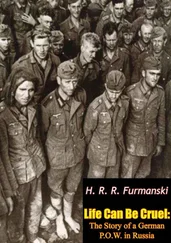At the main station my best friend Sahar waited for me. She is Iranian, and I am kind of a big brother for her. As there was still a little time before the interview, we went into a cafe on Siemersplatz not far from the University clinics. I had a black tea with milk and sugar, the way I liked it when I was a child. From the café I could see the Restaurant Antikes, where I had a weekend job as a dishwasher during my abitur time and the first semester in Luebeck. And now, 8 years later, I was going to apply for a position in further education as an assistant in heart surgery. What a trip!
Sahar left me at the side entrance to the University clinics. With the secretary’s directions I quickly found East House 70. Tense, I waited for the interview to begin. It all went very well. At the end I could ask questions or say something.
“One day I will be a heart surgeon, I would be very happy if you would be my professor,” I said to Professor Reichenspurner and said goodbye to him and the other head physicians who attended the interview. Except for a gray-haired doctor who gave me a skeptical look, all of them shook my hand. On this day I couldn’t imagine that this head physician would one day become a good adviser to me..
The daily work of an assistant doctor doesn’t match the picture of it I had made myself during my studies. Yet there are clear guidelines from the medical board for the training of a heart surgeon, regarding duration and content. But there is no regulation for the training of young doctors, and there is no guarantee that an assistant doctor can become a specialist within a given time frame. The training at a medical specialist is supposed to take six years. Actually the average length of time for the training as a heart surgeon in Germany is more than nine years.
Thousands of young assistants work day and night without the observing of the European labor protection laws and without pay for hundreds of hours of overtime. They do it in the hope that those responsible will, in the long run, train them well. These assistants in our country feel like a squeezed lemon after their hospital work. It is very difficult to motivate doctors to work publicly for their own betterment. Already during their studies, the interest in academic politics in negligible among medical students. On average, their voting participation for student body officers lay just under 15 percent. We fought on election days, even with hotdogs and beer, for every vote cast to get voter participation up over 20 percent. Unfortunately, unsuccessfully.
Just as difficult was it to get the participation of a doctor in the worker council of the hospital. A hard fought battle. Most doctors were not interested in the rights of the employees, and the assistant doctors do not run because they’re afraid their council work will be a disadvantage for their training.
In almost all professions, there are training contracts that give the trainees the security that they will have the appropriate qualifications. In medicine, the clinic director alone decides whether and when an assistant will be trained as a specialist. Regulation of the training by a medical board or by politics does not happen in Germany, despite numerous objectively based shortcomings and numerous complaints.
I didn’t want to criticize this system, without myself contributing toward improvement. Therefore I offered to be assistant speaker in my clinic and ran for the management council as the sole doctor among more than 200 medical co-workers.
In the first years of my training I was assigned as doctor to a station that took over patients who after a surgical heart intervention stayed there until their discharge. It was station H5B, my home at work. Every day I pushed the visitation cart with the patients’ electronic files from one room to the next, going from patient to patient. Most of the information about a patient’s healing process I got from the proper caregivers. That is the professional group in a hospital that spends the most time with the patients.
I stood before room 513, the assigned caregiver spoke hesitantly to me: perhaps it would be better if a colleague could take the visit. It was visibly unpleasant for her. I didn’t kwhat to think about it, and wanted to know what was going on. She came right out and said the patient, Mister Clausen, had complained about being treated by a black man, who wasn’t even a regular doctor at the clinic. The patient’s wife also had called the station and asked if a black man worked in the clinic as a doctor. That surprised me very much, for during my visit the previous day I had not noticed anything peculiar in Mister Clausen’s behavior. As usual I had entered the ward with the greeting ”Moin Moin, dear friends” and had asked every patient how he was feeling. When I asked Mister Clausen, he just looked out the window and said nothing. I had assumed that the 80-year old patient had gone through a difficult bypass operation, and was not yet able to respond to my question.
That his behavior was directed against me, hurt me, but I said to my caregiver colleague, “It doesn’t matter whether he is a Nazi or a criminal or whatever prejudices he may have, he is my patient and I will continue to treat him.”
The wife’s complaint circulated quickly in the clinic. My medical superintendent became angry, and told him he could be transferred anytime to another clinic. I insisted that he was my patient and that I would like to continue to treat him, unless he chose to leave the clinic voluntarily.
I recalled a similar situation when I had looked over a patient during my night shift, who had to be treated with many medications because of a weak heart. I wanted to be sure that his condition was stable, that I did not have to take further measures.
The next day the patient complained about the visit of a station doctor who was a pakistani refugee who had come into the room at night and had said he was a doctor. My colleague became angry about this patient and told the superintendent about it. The superintendent said to the patient during his visit quite casually: “Please don’t be surprised that there are pakistani refugees working in this clinic. They are, by the way, the best we have.” and left the ward. My colleague who had been there at the time told me the story, and we enjoyed a good laugh about it.
Now I had the second visit with Mister Clausen, who didn’t want to be treated by a dark skinned doctor. For me it was important to get along with him, detached and polite, without emotion. I had to treat every patient equally well, irrespective of background, skin color, religion or political persuasion. This is my medical duty. Even a Sri Lankan president, responsible for the persecution and annihilation of thousands of Tamils. If he is my patient, I have to treat him as I would my own father.
I entered room 513, greeted Mister Clausen, listened to the noise from his lungs, checked the wounds on his breastbone and the right thigh, where the veins had been taken for bypass material, and thoroughly inspected his legs for edema. I explained to him how important the regular breathing exercises were after heart surgery, and that during the day it would be better for him to sit, to stand, or to walk rather rather than lie in bed to prevent his getting pneumonia. Pneumonia, in older people, can even end in death. I asked him to activate the muscles of his legs, when sitting, with foot movement, so that the muscle pump could force the peripheral edema quickly to the heart and thus over the kidneys. Lastly I formed a small ball from OP socks that he should use for hand gymnastics in order to get rid of the hand edema.
Then with the nurse I prepared the removal of the thorax drainage that had been laid for the discharge of wound fluid. For the patient, the pulling out of the drainage was very unpleasant. I patiently explained to Mister Clausen every step and removed the drainage without problem. I also explained to him every medicine that he had to take right away. I visited him daily and I didn’t hear him utter a word. Mostly he avoided looking at me. That was frustrating.
Читать дальше












